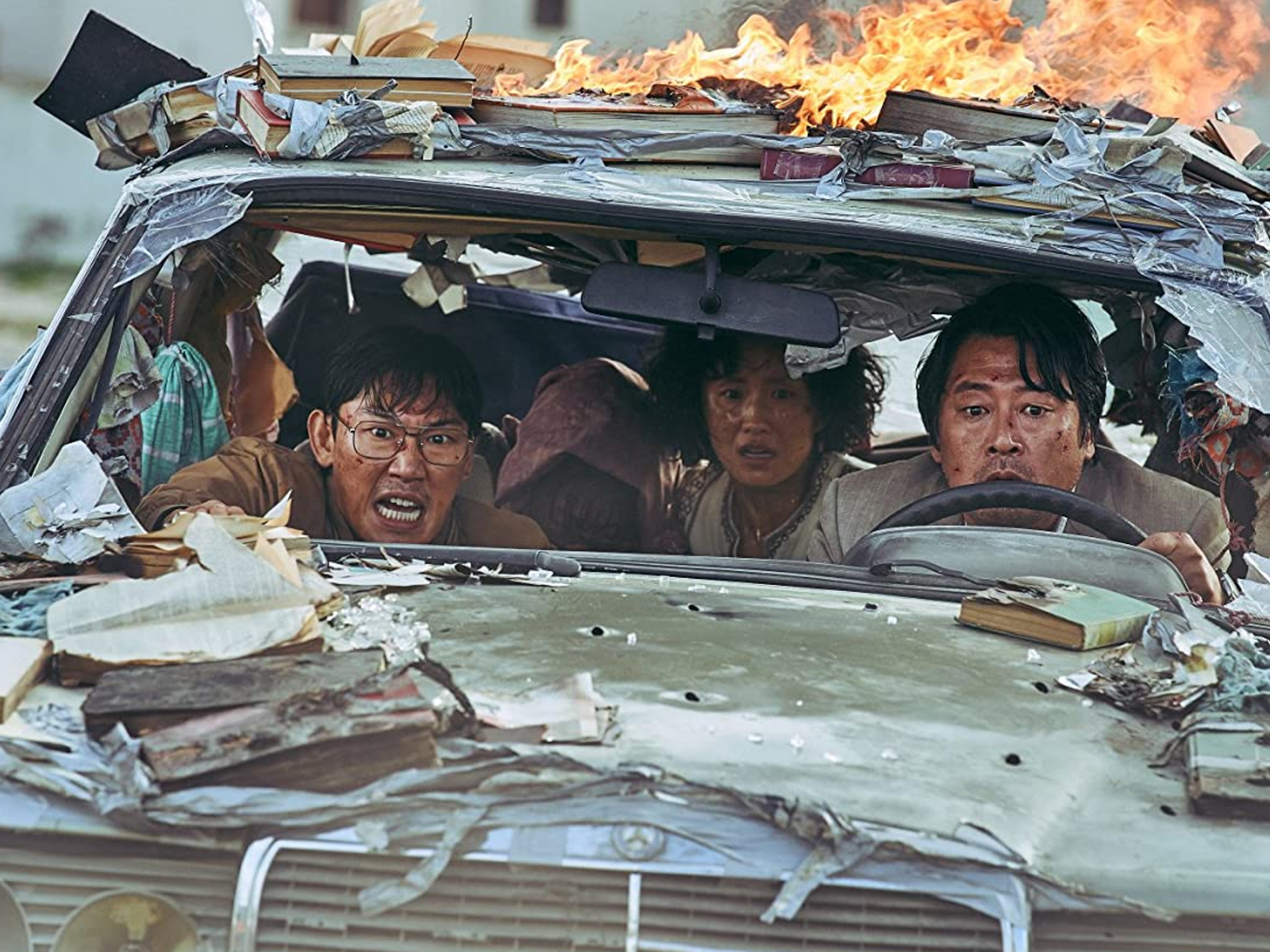
- Golden Globe Awards
Escape from Mogadishu (South Korea)
South Korea’s political action thriller Escape from Mogadishu is set in Somalia during the 1991 Somali civil war. Two South Korean diplomats, played by Han Shin-sung (Kim Yoon-seok) and Kang Dae-jin (Zo In-sung), who had been sent to the region in 1987, prepare to evacuate their embassy along with their employees, gathering family members as they make a desperate attempt to flee the country to safety.
During this chaotic ordeal, while Somalis are being killed outside their embassy doors in the midst of pervasive rioting and explosions, the South Koreans must contend with corrupt local police while at the same time trying to protect their North Korean fellow diplomats (despite the fact the North Koreans had armed the rebels in the first place), who have asked for their help, and keep them from harm.
Native Korean director Seung-wan Ryoo (Crying Fist, The City of Violence) explains how the project came about. “I didn’t remember exactly what happened at the time of this incident,” he says, “but once I got the proposal, I started researching it and I realized most people didn’t know about what happened.
“Once I learned about the story, I realized this is something thatcould literally only be told by Koreans. It would be very difficult for anyone else to make it anywhere else in the world. So, at first glance, like any other genre film, you have the backdrop of a civil war, and then you have victims who make a daring escape.”
But this is not merely another film like so many we’ve seen many times, as Ryoo goes on to explain. “Yes, it might seem familiar, but if you look deeper, if you look at the very special relationship between the South Koreans and the North Koreans, and also at the subject matter and the characters themselves, it’s something that you can’t really find
anywhere else.”
Producer Kang Hyejeong adds, “I feel the same way. This story asks the fundamental question of what is a human being? What are we? Who are we? And what is life? I felt that everyone could relate to the question of what the meaning of those things are. And as it’s set in the most Korean of situations, of course I wanted to make it.”
Ryoo continues. “The people of the two Koreas, who consider each other their worst enemy, meet in Africa. You realize through the movie that although they are each other’s worst enemy, they are two groups that can communicate with each other without an interpreter. Also, what’s interesting is that even at a moment where they’re eating their dinner, and nobody’s talking, without any conversation they each know how the other eats their food, what they eat, and how they need to help each other. This is all done without any words. So, if it weren’t for the political or the ideological divide in a system, then these two groups of people are people who could have the most fun and be the happiest.”
Shot in Morocco, the film is reminiscent of Argo, and particularly of Black Hawk Down. Ryoo says, “Yes, but the decisive factor that sets this story apart is the situation of Korea at the time this incident happened. When the diplomats were stranded on foreign soil, their
governments were unable to help.”
There’s a respite from the horrors of war towards the end of the film, where an expertly choreographed car chase zips through the rebel-occupied streets. Ryoo offers, “What actually happened was that four cars left the Korean embassy headed for the Italian embassy. In the process, only one person was killed, and that is a fact. So, the first thing we did was take a map of Mogadishu and figure out their route.”
For Ryoo, the authenticity factor superseded the need for speed, so often the director’s priority in a cinematic car chase. “Everyone had to be on board when it came to understanding exactly what happened. It was a different approach from the action sequences that you see in blockbusters. It wasn’t important for us to give people a sense of speed or to show the magnitude of the situation. What was more important for us was to make the audience feel exactly how tense it was and how terrifying it was for the people in the scene,” he says. “It was more important to show that fear being generated within the
car rather than what was happening outside the cars.”
Ryoo offers a unique take on the Somali civil war, which led to the ousting of President Mohamed Siad Barre; it’s a story we’ve seen many times, but to his credit Ryoo makes it his own.

